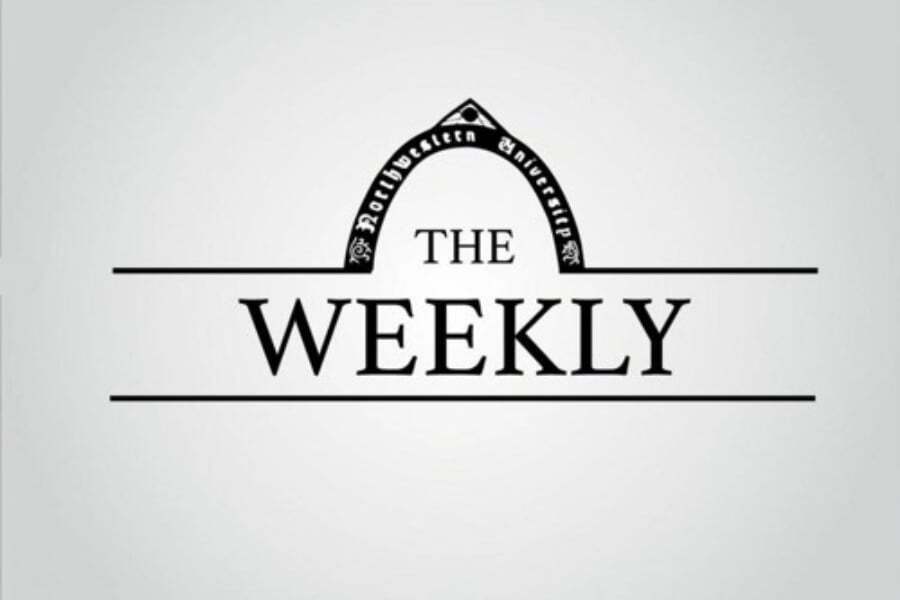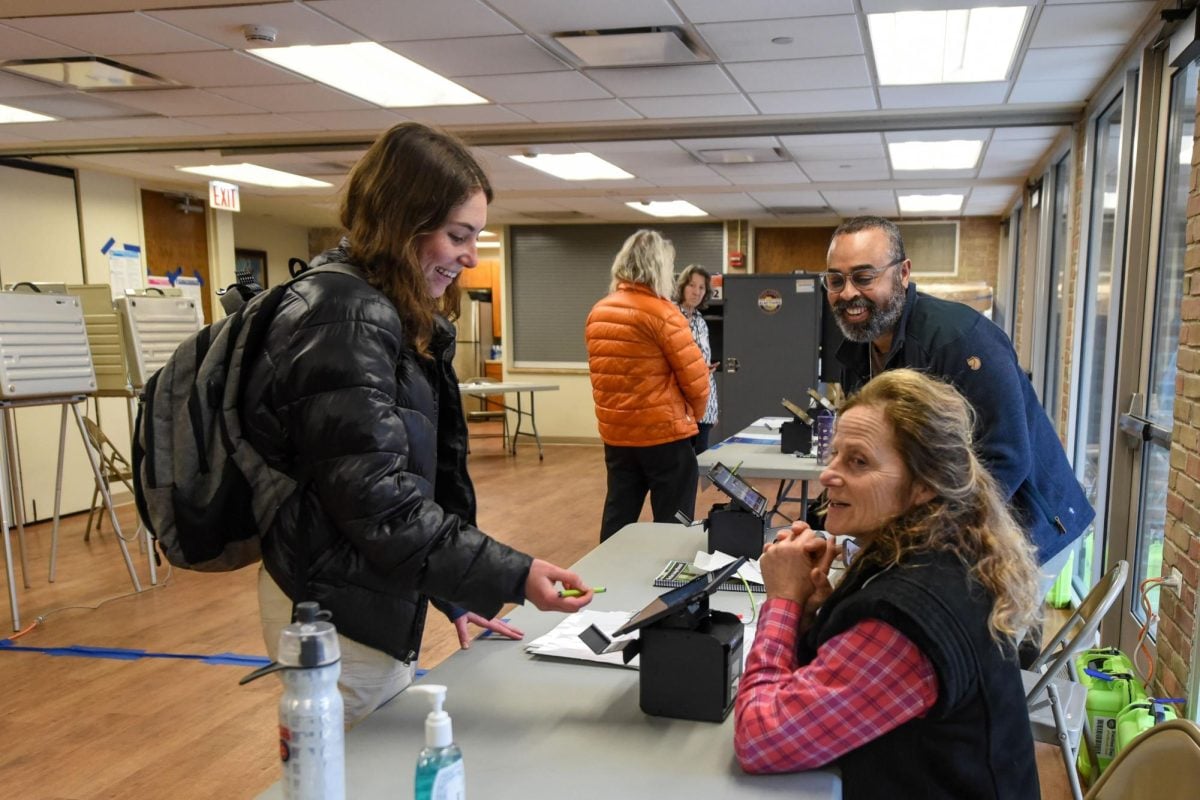
 Since Election Day more than two weeks ago, several Northwestern professors have spoken at events about the reasons behind Donald Trump’s decisive victory — and the potential impacts of his second term. The Daily interviewed some of these professors on their perspectives surrounding Republicans’ recent election wins.
Since Election Day more than two weeks ago, several Northwestern professors have spoken at events about the reasons behind Donald Trump’s decisive victory — and the potential impacts of his second term. The Daily interviewed some of these professors on their perspectives surrounding Republicans’ recent election wins.
LAUREL HARBRIDGE-YONG: Many Democrats saw democracy as being on the ballot, something that had helped them in 2022 when a lot of the election deniers in the Republican Party lost. And so there was this thought, I think, among some Democrats that that, combined with Trump’s attacks on minorities, on women’s rights, on LGBT communities, on a whole bunch of other groups, would mobilize more Democratic support in the election.
But what we ended up seeing is this was a fairly normal anti-incumbent election that happened to benefit an abnormal candidate.
EDWARD SIMON CRUZ: That was political science Prof. Laurel Harbridge-Yong, who is also the associate director of Northwestern’s Institute for Policy Research.
Harbridge-Yong moderated an IPR panel two weeks ago about potential threats to democracy following Donald Trump’s presidential election victory. That panel was one of several events on campus breaking down the results and their potential implications.
From The Daily Northwestern, I’m Edward Simon Cruz. This is What’s New at NU.
We spoke with several professors about why Trump and other Republican politicians scored major victories earlier this month. We also asked them what these results may mean for the Democratic Party and the country in the coming years.
Harbridge-Yong said many models use two main factors to predict the outcomes of presidential elections: the state of the economy and presidential approval ratings. In this case, she said, dissatisfaction about inflation contributed to Democratic losses.
LAUREL HARBRIDGE-YONG: This was a place where there was perhaps a gap between perceptions of the economy and what it really was — that, you know, inflation was back to normal levels. Unemployment was low, the jobs and economic growth was actually quite strong, but perceptions of the economy were weak, and that factored into Biden’s low approval ratings.
And so, in that case, the U.S., just like many other democracies around the world, faced what we would call an anti-incumbent election, where the incumbent party is hurt by perceptions of a poor economy and so forth, so this would help whoever the Republican candidate was.
EDWARD SIMON CRUZ: Political science Prof. Jeffrey Winters said voters — especially blue-collar ones — have rejected established leaders in both major parties following Trump’s political ascension. Winters said Trump’s victory in both the electoral college and the popular vote reflected a belief that establishment politicians were not supporting everyday citizens.
Winters has previously researched oligarchies around the world, governments where power rests with a small group of people. He said in the last several decades, wealth has become more concentrated in the upper class, leaving everyday workers and families struggling financially.
JEFFREY WINTERS: All of these things reflect material obstacles that are very real and have created a great deal of frustration. Meanwhile, American workers have watched their industries, their jobs decline, what America produces being less and less, and the architects of the treaties and the trade negotiations globally that have fanned globalization, and a move of jobs and industries offshore has been fanned by both the establishment Republicans and the Democrats.
EDWARD SIMON CRUZ: Another political science professor, Daniel Galvin, said since the 1970s, the proportion of working class voters identifying as Democrats has declined.
Galvin said he was skeptical of arguments that Vice President Kamala Harris did little to address voters’ economic concerns. He cited data showing that Harris ran a large number of advertisements focused on economic issues like inflation.
DANIEL GALVIN: I think she was tapping into those sentiments, but you just had an overall sense of discontentment with the status quo, right? And it’s very difficult to pin down — every pundit wants to pin it down on some issue in particular or one group, like working class voters in particular, but I don’t think that that is an adequate or sufficient explanation for the broad shift that we saw to the Republican Party.
EDWARD SIMON CRUZ: Winters said Republicans successfully defined Democrats more in terms of cultural and social issues. He added that Democrats would benefit from speaking more directly to the concerns of working class voters, addressing issues like minimum wages and childcare services.
JEFFREY WINTERS: That means things like making sure that wages and minimum wages are livable wages, to make sure that resources are available so that parents, mothers in particular, who have many of the child-rearing burdens still in families — they’re able to be in the workforce and have childcare and many, many things like this, which make a huge difference in the lives of families, and to be upfront about those things, and also to talk very directly about the problem of wealth concentration and the fact that it’s not healthy for the United States, economically or politically, to have so much power and so much wealth in so few hands.
EDWARD SIMON CRUZ: Galvin said that if Democrats want to win back working class voters, they should focus on rebuilding labor unions and other organizations where voters can develop a collective identity.
DANIEL GALVIN: If anyone’s interested in trying to, you know, do something and act in order to change the political landscape right now, that’s where you got to start. You got to start with organizing in your local communities around issues that you care about.
EDWARD SIMON CRUZ: From The Daily Northwestern, I’m Edward Simon Cruz. Thanks for listening to another episode of What’s New at NU. This episode was reported and produced by me, Edward Simon Cruz.
The audio editor of The Daily Northwestern is me, Edward Simon Cruz. The digital managing editors are Carlotta Angiolillo and Sasha Draeger-Mazer. The editor in chief is Jacob Wendler.
Our theme music is “He’s Gonna Come and Get You Baby” by Xennial, used under a Creative Commons Attribution 4.0 International License and provided by the Free Music Archive.
Make sure to subscribe to The Daily Northwestern’s podcasts on Spotify, Apple Podcasts or SoundCloud to hear more episodes like this. Follow us on X and Instagram @thedailynu.
Email: edwardcruz2027@u.northwestern.edu
Related Stories:
— NU faculty experts worry about second Trump presidency in post-election panel
— Institute for Policy Research hosts panel on 2024 election and threats to democracy
— Presidential election results prompt mixed reactions on campus




